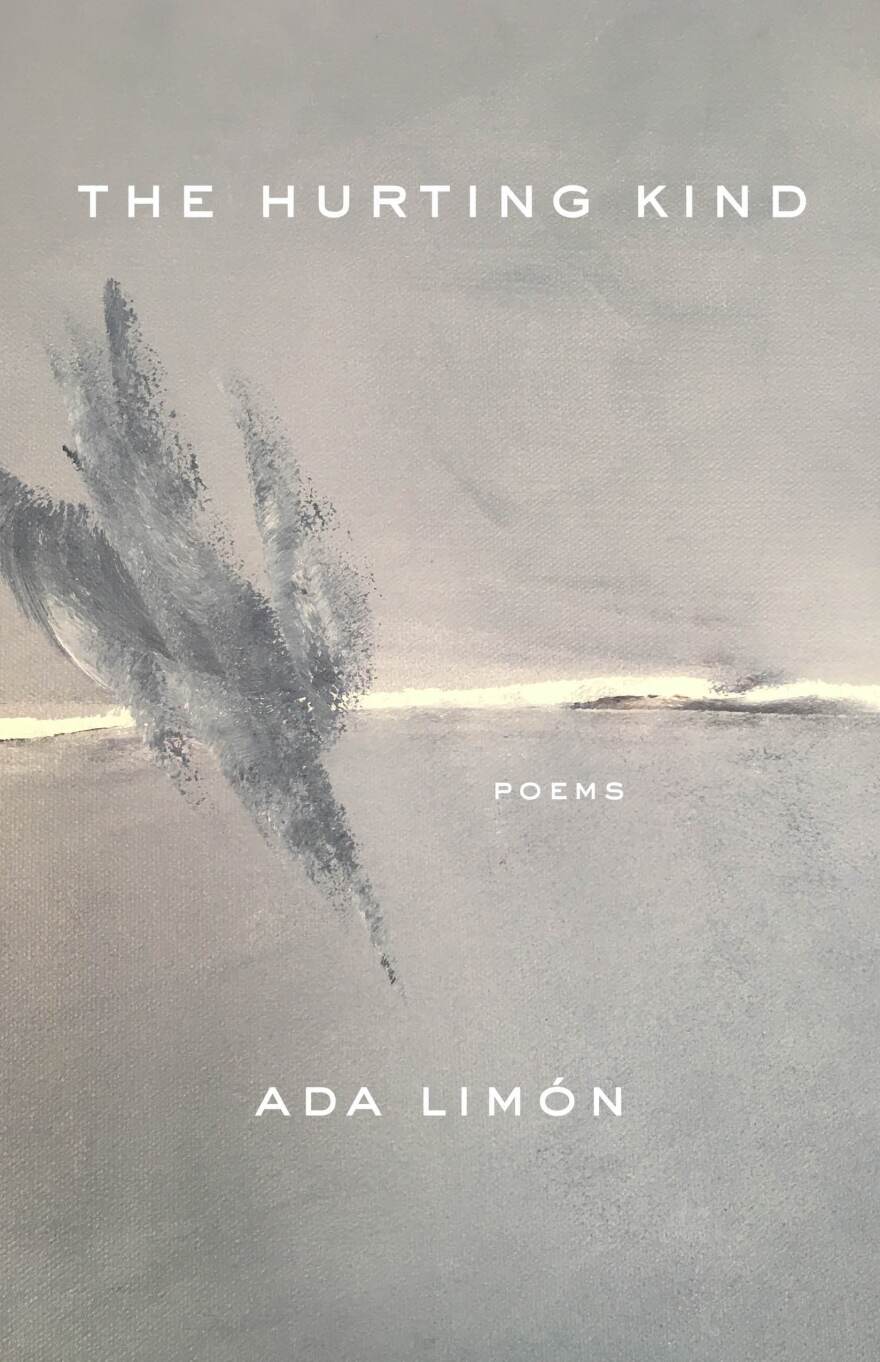For poet Ada Limón, evidence of poetry is everywhere. It connects big ideas — like fear, isolation, even death — with little details — like field sparrows, a box of matches, or "the body moving / freely."
The award-winning poet's sixth and latest collection, The Hurting Kind, is a testament to the power of such sensitivity. Limón is fond of watching the world, and though she notes its imperfections, she is also fond of living in it.
As in her previous notable collections — The Carrying won the National Book Critics Circle Award and before that, Bright Dead Things was a National Book Award finalist — Limón is acutely aware of the natural world in The Hurting Kind. And she has a knack for acknowledging its little mysteries in order to fully capture its history and abundance.
As an example of this, the poem "The First Fish" stands out. The speaker is at a lake reeling in her very first "great fish" and "immediately. Disaster on the rod," Limón writes. She wants to release the fish but an "old tree of a man" yells at her to hang on. Then, "finally seeing / the black carp come up to meet me, black eye / to black eye," she asks:
Is this where I am supposed to apologize? Not
only to the fish, but to the whole lake, land, not only for me
but for the generations of plunder and vanish.
The speaker feels "barbarous" — apprehensive not just of the fish eye on her, but also of the eyes of her "ancestors." "I wanted to catch something; it wanted to live," she writes. So runs the hierarchy of the world. Yet, as the poem ends, the speaker recognizes the flaws of that order:
... I killed a thing because
I was told to, the year I met my twin and buried
him without weeping so I could be called brave.
This form of attention, tied to the relationship between humans and the natural world, is typical for Limón's poems. The poet often directs this attention back to herself — learning from nature how to interact with her feelings, her reactions and her memories. The power of attention, Limón conveys, is in finding out just how an individual's experience might fit into the collective experience.
But in The Hurting Kind Limón takes her method even further to ask: Isn't wonder enough? The collection, divided into four parts, moves from spring to winter. The expectation is that the reader's attention will follow as the seasons change, guided by the poet on where to look, and how.
Yet there is an instant break in that expectation. As in "The First Fish," the poems also reveal that the reader is being regarded by the world as well.
In another poem, "Sanctuary," she writes:
... I have, before, been
tricked into believing
I could be both an I
and the world.
This is Limón's push — that to be "eyed" by the world is to be an "I." The poet draws attention to the act of being seen and asks us to simply let go:
To be made whole
by being not a witness,
but witnessed.
So we tend to look for answers, as if our "wholeness" relies on knowing our place in the world. And a poem, vigilant, tracks feelings like it's a job. Limón wonders, could the same poem delight in just being?
In the long titular poem "The Hurting Kind," she writes: "I have always been too sensitive, a weeper / from a long line of weepers. I am the hurting kind. I keep searching for proof."
To know one's "kind" – one's lineage – can answer a lot of questions for us. It can connect us to the world, make us feel less alone. At one point in the poem, the speaker's mother says, "You can't sum it up" as the GPS reads out instructions on how to get to their destination:
So I turn left, happy for instructions.
Tell me where to go. Tell me how to get there.
She means a life, of course. You cannot sum it up.
Above all, The Hurting Kind asks for our attention to stay tender. To know that the world is here to both guide us and lead us astray. Toward the end of the long poem, Limón writes: "I will not stop this reporting of attachments. / There is evidence everywhere." So don't stop looking. Just be open to what you may find. And know that the world is watching you, too.
Copyright 2022 NPR. To see more, visit https://www.npr.org.



